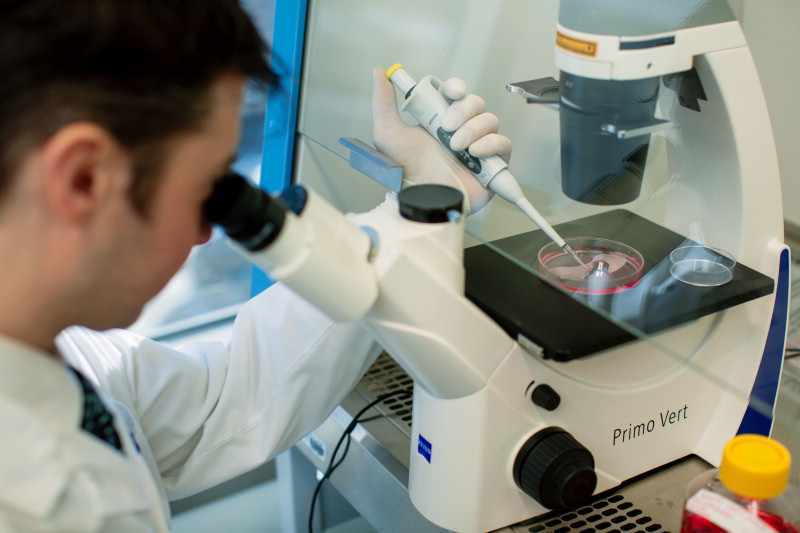-
Featured News
Regenerative Medicine Offering New Treatment for Bronchopleural Fistulas

ROCHESTER, Minn. — When current treatment isn’t enough, patients at Mayo Clinic often are among the first to benefit from innovative therapies, new techniques and technologies. For the first time in human application, Mayo Clinic researchers successfully closed an open wound on the upper chest caused by postoperative complications of lung removal. The findings appear in the journal Stem Cells Translational Medicine.
Called bronchopleural fistulas, these wounds are holes that lead from the large airways in the lungs to the membrane that lines the lungs. Standard surgical approaches for these fistulas induce poor health and death.
“Current management is not reliably successful,” says Dennis Wigle, M.D., Ph.D., Mayo Clinic thoracic surgeon and lead author of the paper. “After exhausting therapeutic options, and with declining health of the patient, we moved toward a new approach. The protocol and approach were based on an ongoing trial investigating this method to treat anal fistulas in Crohn’s disease.”
Stem cells were harvested from the patient’s abdominal tissue and seeded onto a bioabsorbable mesh. The mesh was surgically implanted at the site of the fistula. Follow up imaging indicated that the fistula was closed and remained healed. More than a year-and-a-half later, the patient remains asymptomatic and has been able to resume activities of daily living.
MEDIA CONTACT: Bob Nellis and Katie Cottam, Mayo Clinic Public Affairs, 507-284-5005, newsbureau@mayo.edu
The paper describes the case of a 63-year-old female patient, who was referred to Mayo Clinic for treatment of a large bronchopleural fistula. With current therapies offering little relief, researchers turned to regenerative medicine for an innovative treatment.
“To our knowledge, this case represents the first in human report of surgically placed stem cells to repair a large, multiply recurrent bronchopleural fistula. The approach was well tolerated suggesting the potential for expanded use,” says Dr. Wigle.
While the procedure had success in this case, it is unclear the degree to which the treatment itself contributed to the healing of the fistula. The researchers urge further investigation on bronchopleural fistulas and the use of stem cells in their treatment.
Co-authors of the paper include Johnathon Aho, M.D., Allan Dietz, Ph.D., Darcie Radel, Greg Butler, Mathew Thomas, M.D., Tim Nelson, M.D., Ph.D., Brian Carlsen, M.D., Stephen Cassivi, M.D., Zachary Resch, Ph.D., and William Faubion, M.D.
###
About Mayo Clinic
Mayo Clinic is a nonprofit organization committed to medical research and education, and providing expert, whole-person care to everyone who needs healing. For more information, visit http://www.mayoclinic.org/about-mayo-clinic or https://newsnetwork.mayoclinic.org/.







